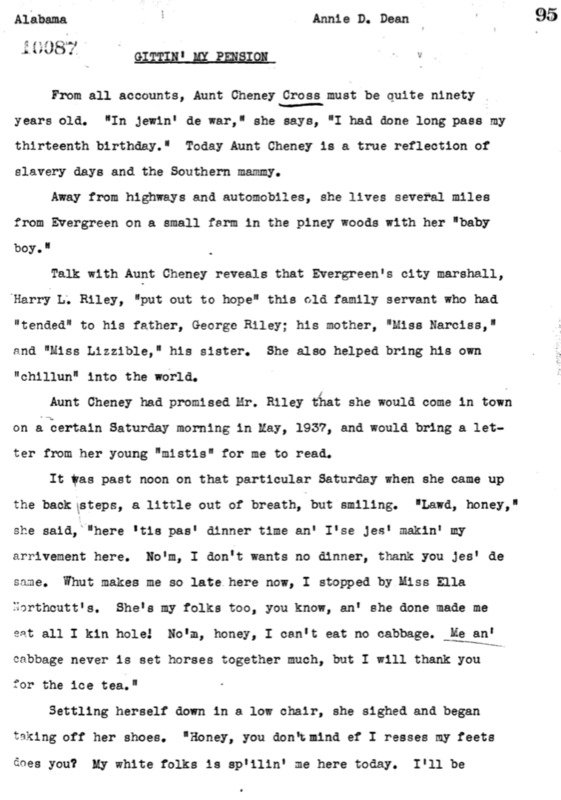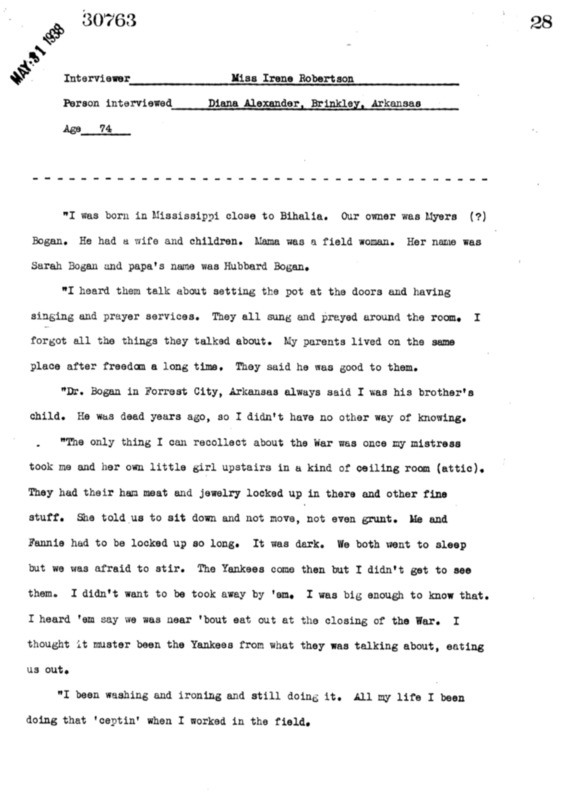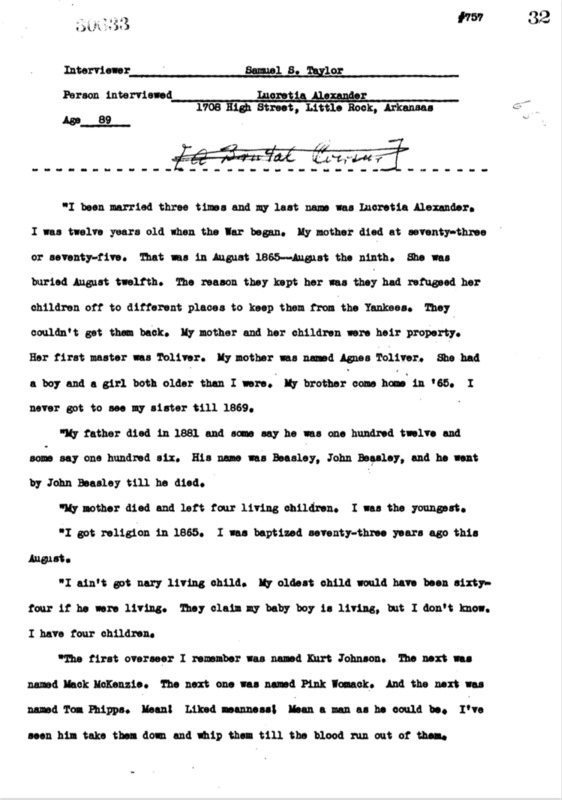Limitations and Value of the Collection
The Federal Writer's Collection of "Slave Narratives" provides insight into the experience of previously enslaved individuals. However, the interview process which curated this collection created potential limitations in its accuracy. The race of the interviewers, who were mostly white, could play a large impact in what the interviewee chose to say. According to Yetman, a significantly larger number of the individuals transcribed with black interviewers were willing to talk about their experiences of physical violence and mistreatment than with white interviewers. As well, the style of transcripted words themselves vary between interviewers, with some more heavily emphasizing dialect than others and calling into question the accuracy of the transcription as a result. Despite this, the experiences transcribed are extremely valuable in understanding how enslaved individuals coped under the stratifiying institutions they were placed in.


